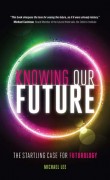The royal baby: a reality check
25 July 2013 by Infinite Ideas in Business and finance
By Michael Lee, founder of the Institute of Futurology (www.futurology.co.za)
The royal baby is not the sign of a progressive long-term future for the United Kingdom: a futurist’s perspective.
The monarchy is probably bad for Britain’s long-term social future. Human societies evolve towards increased degrees of freedom and equality before the law. Feudalism is gone. Slavery is proscribed. Women’s equal rights have reached many parts of the globe, as has education for all. Democracy is spreading throughout the world. Free access to information has accelerated under the impetus of the internet. In the long run, the world is heading, through painful struggle, for increased freedom and equality. It is in striving for social progress that countries and societies stay vital and adaptable to changing global conditions.
 But the monarchy, which diminishes both freedom and equality with its system of hereditary, unelected power, remains in control as constitutional head of state in Britain and its Commonwealth realms. If social cohesion is built on a foundation of freedom and equality before the law how can it be beneficial for British society to preserve into the twenty-first century a medieval institution the political principles of which plainly contradict those of democracy? Since Queen Elizabeth II is also the sovereign, or supreme governor, of her Commonwealth realms, including Canada, Australia, Papua New Guinea, New Zealand, and Jamaica, this issue is international in scope.
But the monarchy, which diminishes both freedom and equality with its system of hereditary, unelected power, remains in control as constitutional head of state in Britain and its Commonwealth realms. If social cohesion is built on a foundation of freedom and equality before the law how can it be beneficial for British society to preserve into the twenty-first century a medieval institution the political principles of which plainly contradict those of democracy? Since Queen Elizabeth II is also the sovereign, or supreme governor, of her Commonwealth realms, including Canada, Australia, Papua New Guinea, New Zealand, and Jamaica, this issue is international in scope.
While the media fawn over the Royal Family because it constitutes a source of endless news copy that, like stories of celebrities, increases sales, the underlying fact is that the monarchy is an antiquated political system which fosters ideas of human subservience and inequality.
It’s ironic that the nation which pioneered the modern concept of democracy, with its historic seeds in the Magna Carta of 1215, should have ended up as the world’s leading exponent of the modern constitutional monarchy. It was the rise of merchant power in Britain which provided a new political constituency demanding ever-greater parliamentary freedom from monarchical rule and aristocratic domination.
While Britain today has a demographically ageing population, which favours the survival of the monarchy in terms of ongoing electoral support, given that older societies tend to be more conservative and change-averse, there are already pressures on the country to reinvent itself as a highly diverse, globally competitive society which can halt its global decline. These growing pressures are likely to produce a new political class which may see the monarchy as an affront to modern-day freedom, equality and diversity. I imagine a new political party may arise in Britain in the next decade which will strive to create a freer, more cohesive society and one of its ideas will be to hold a referendum to decide on the future of the monarchy.
The rise of the movement for Scottish independence provides a model for this kind of wide-ranging constitutional sea-change in British politics. In September 2014 Scotland will choose whether or not to opt for independence and rebirth. From the birth of the Scottish National Party (SNP) in 1934, it will have taken 80 years to reach next year’s national referendum. That’s a lengthy trajectory to make progress in bringing about fundamental constitutional change.
My home country, South Africa, opted to control its own national destiny when the Republic of South Africa was constituted on 31 May 1961. Looking back now, this was an important moment in our national evolution. In 1994 an internationally acclaimed political miracle ended apartheid and inaugurated the presidency of our nation’s founding father, Nelson Mandela. We were once again choosing our own destiny and pushing our evolution as a society and a people in the direction of freedom and equality.
Constitutional change is measured in decades, not years. It is also measured in the political courage required to embrace a new future. Given that in the information age, the germination and spread of ideas has greatly accelerated, I would suggest it would take a new political republican party in the United Kingdom at the very least a full generation to arrive at a realistic chance of winning a referendum in Britain to abolish the monarchy. The British monarchy has long outlived predictions of its demise. In his ground-breaking 1901 book Anticipations, pioneering futurist H. G. Wells forecast the demise of the monarchy. This institution is still going strong in 2013, well over a century later.
The Queen herself is a person of great stature, extraordinary dignity and admirable personal qualities but the institution she heads perpetuates a subtle form of oppression by enshrining the rather toxic idea that unelected political power and privilege, allied to the social inequality of an aristocracy of elites, is acceptable in a progressive and progressing twenty-first century society.
 In the midst of our celebrations we’d be wise to take time to consider whether we can truly call ourselves free and progressive while the monarchy retains such power and privilege.
In the midst of our celebrations we’d be wise to take time to consider whether we can truly call ourselves free and progressive while the monarchy retains such power and privilege.
Michael Lee’s book Knowing our Future – the startling case for futurology is available at the publisher or on Amazon.
